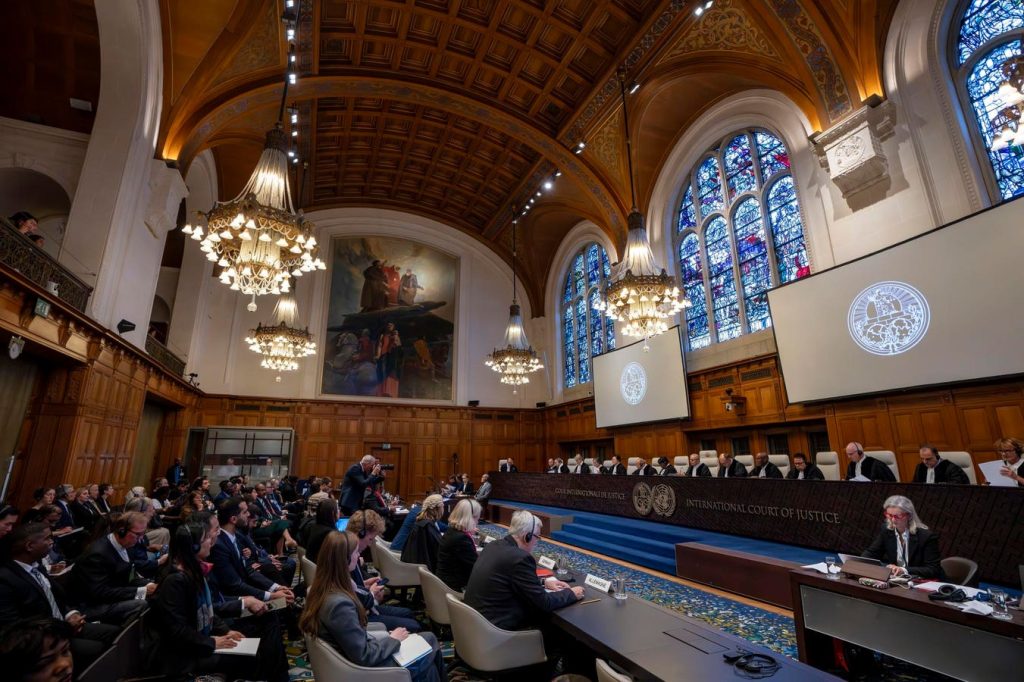The International Court of Justice (ICJ), also known as the World Court, recently concluded oral hearings regarding its forthcoming advisory opinion on states’ obligations concerning climate change. Prompted by a request from the United Nations General Assembly (UNGA), initiated by the nation of Vanuatu, the ICJ is tasked with clarifying the legal responsibilities of nations in mitigating climate change and their potential financial liabilities for contributing to this global crisis. This advisory opinion, while not legally binding, holds significant weight as it will likely influence future climate litigation and the development of international climate law. The hearings, held over two weeks in December 2023, witnessed presentations from over 100 countries and organizations, each providing their perspective on the complex legal issues intertwined with climate change.
The central questions presented to the ICJ revolve around two key aspects: firstly, the obligations of states under international law to protect the climate system from anthropogenic greenhouse gas emissions for current and future generations; and secondly, the legal consequences for states whose actions or inactions have caused significant harm to the climate system. This second question specifically addresses the implications for vulnerable states, particularly small island developing states, and for present and future generations affected by the adverse impacts of climate change. The proceedings highlighted a clear division between developed and developing nations, with the former largely arguing for the primacy of existing treaty law, while the latter emphasized broader principles of international law and human rights.
The ICJ, established in 1945 under the UN Charter, serves as a neutral judicial body for resolving disputes between nations. Composed of 15 judges elected by the UNGA and the UN Security Council, the Court operates from the Peace Palace in The Hague, Netherlands. The current President, Judge Nawaf Salam of Lebanon, presided over the climate change hearings. Following the oral presentations, four judges posed specific questions to the participating states and organizations, seeking further clarification on key legal arguments. These questions probed the obligations of oil-producing countries, the nature of the Paris Agreement’s obligations, the existence of a right to a clean, healthy, and sustainable environment, and the impact of the Paris Agreement on existing international law regarding compensation.
The legal arguments presented before the ICJ primarily centered on the interpretation and application of existing international agreements, notably the United Nations Framework Convention on Climate Change (UNFCCC) and the Paris Agreement. Developed nations, including the United States, Australia, and Germany, asserted the principle of lex specialis, arguing that the specific treaties dedicated to climate change supersede other international legal frameworks. They contended that these agreements define the extent of states’ obligations, precluding additional legal responsibilities for reparations or actions beyond those explicitly negotiated.
Developing countries, however, presented a contrasting perspective, arguing that the UNFCCC and the Paris Agreement represent a foundation, but not the entirety, of states’ climate obligations. They argued that the adverse impacts of climate change infringe upon fundamental human rights enshrined in international common law and the Universal Declaration of Human Rights. Consequently, they advocated for the principle of common but differentiated responsibilities, asserting that developed countries, with their historical contribution to greenhouse gas emissions, bear a greater responsibility and should provide reparations to vulnerable nations disproportionately affected by climate change. This fundamental disagreement underscores the complexities and challenges in establishing a universally accepted framework for addressing climate change and its associated liabilities.
The court’s process involved the submission of written statements followed by oral presentations. Unique to the ICJ’s proceedings, judges posed their clarifying questions after the conclusion of all oral arguments. Participants then had a designated period to submit written responses to these questions. This approach, distinct from the more interactive questioning style of some other judicial bodies, allows for a comprehensive consideration of the arguments presented before focused inquiries are made. The diversity of participants, including states from all levels of development, international organizations, and representatives of vulnerable communities, highlights the global significance of this advisory opinion and its potential to shape the future of international climate law. The ICJ’s eventual opinion is eagerly awaited as it promises to provide a crucial legal framework for addressing the multifaceted challenges posed by climate change.

